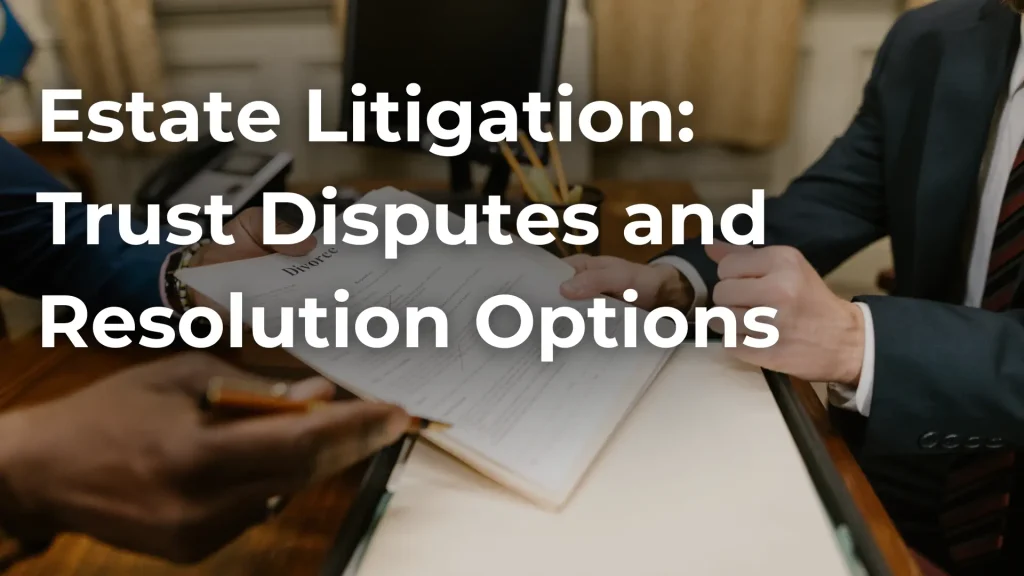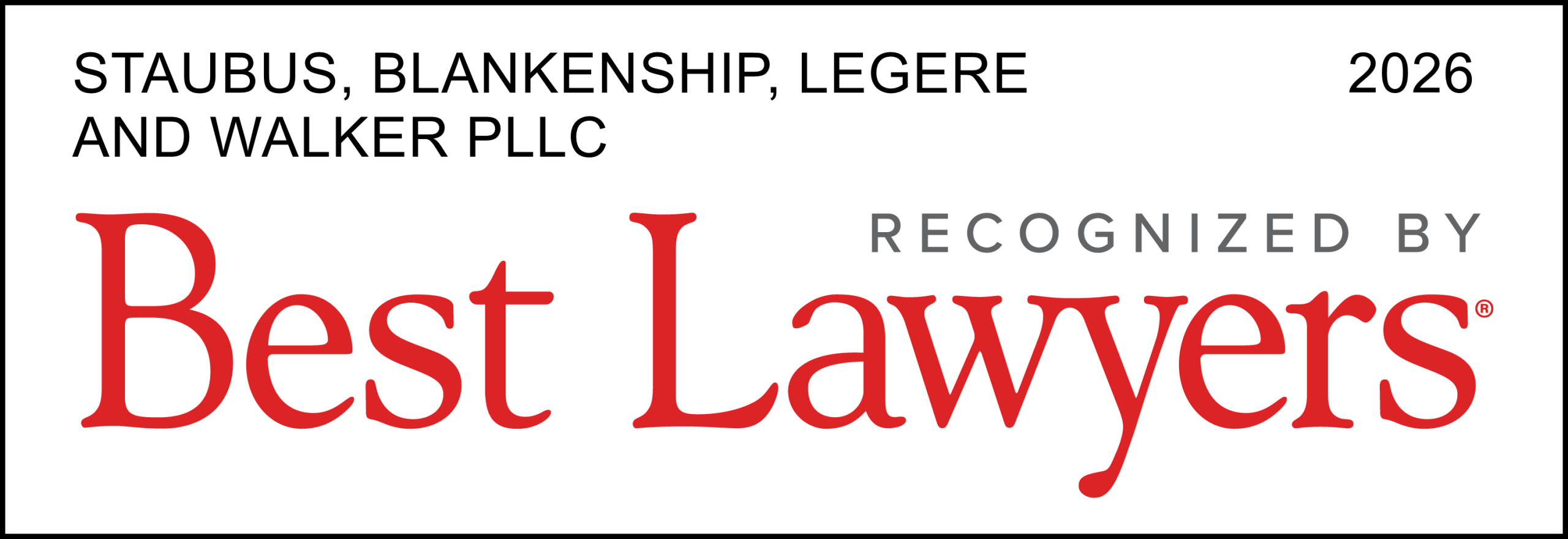
Trusts are powerful tools for preserving family wealth, but they can also lead to heated disputes. Questions about a trust’s terms or the creator’s mental state frequently cause conflicts. In many cases, trust dispute resolution methods—such as mediation or arbitration—can produce better results than going to trial.
At Staubus, Blankenship, Legere and Walker PLLC, we want what’s best for your family and to protect your rights if there’s a trust dispute. Our Dallas trust litigation lawyers have decades of combined experience that we can use to resolve your disagreement, whether through litigation or other methods. If you’re interested in trust dispute resolution options that avoid court hearings, we’re ready to help you find the best path forward.
What Is a Trust Dispute?
Trust disputes involve someone challenging some aspect of the document or its oversight. These disputes often involve claims of fraud, undue influence over the trust’s creator, or unclear language in the trust document. For example, a beneficiary might feel mistreated or accuse a trustee of wrongdoing—situations where trust dispute resolution can help address concerns without the stress of litigation.
Common Causes of Trust Disputes
Some common reasons behind trust disputes in Dallas include:
- Undue Influence – A beneficiary might challenge a trust if they believe someone pressured or manipulated the person creating it into writing the trust a certain way. For example, someone might argue that a family member coerced the trust’s creator during an illness or after an injury.
- Lack of Capacity – Disputes can arise when it’s unclear whether the grantor was mentally competent when they made or altered the trust. (The grantor is the person who created the trust.)
- Breach of Fiduciary Duty – The law requires trustees to act in the best interests of the beneficiaries. Disputes can occur due to accusations of a trustee mismanaging funds, favoring particular beneficiaries, or failing to follow the trust’s terms.
- Ambiguous Language in the Trust – Vague or confusing language in the trust document can lead to disagreements over the grantor’s intentions and how to distribute the trust’s assets.
- Exclusion of Expected Beneficiaries – When family members are left out of a trust unexpectedly, they may challenge the document’s validity.
- Improper Execution—A trust might be subject to legal challenges if the creator didn’t sign documents properly or have them witnessed properly.
- Fraud or Forgery – Allegations of altered documents or forged signatures often lead to lengthy legal battles over trusts.
- Unaccounted or Missing Assets – Beneficiaries may question the trustee’s estate handling when assets listed in the trust are missing or not properly transferred.
Legal Options for Resolving Trust Disputes

People often want to jump straight to a trial when trust disputes occur. However, alternative methods can help preserve family relationships and save money for all involved. Some ways to resolve trust disputes include:
- Informal Negotiation – You may be able to resolve a trust dispute through open discussions with an angry family member or other beneficiary. Clear communication between trustees and beneficiaries can avoid court battles entirely.
- Mediation – In many cases, a neutral third party can help resolve a trust dispute without involving the courts. Mediation is confidential, less expensive, and often faster than a courtroom battle.
- Settlement Agreements – If everyone agrees, you can resolve the dispute by signing a formal agreement. This document can change how the trustee will handle the trust’s assets or clarify unclear terms.
- Trust Modification or Reformation – If the trust’s language is vague or outdated, you can ask a court to modify or clarify it without a full trial.
- Accounting Requests – As a beneficiary, you can request a formal accounting of the trust’s assets from the trustee. This procedure can resolve confusion about asset distributions and other familiar sources of trust disputes.
- Trustee Removal – If you believe a trustee has misbehaved, you can petition the court to have them removed and replaced.
- Probate Court Petition – In some cases, filing a simple petition with the court for instructions or clarification can resolve a dispute without a full trial.
- Filing a Lawsuit – Litigation (a trial) may be necessary when other options fail. In these circumstances, you can take the dispute to the probate court and ask a judge to decide.
Contact Our Dallas Estate Litigation Attorneys
The Dallas trust litigation lawyers of Staubus, Blankenship, Legere and Walker PLLC can protect your rights and help you resolve your trust dispute, no matter your side. Our team has over 100 years of combined experience and in-depth knowledge of these issues, and we can use those tools to achieve your goals. Call (214) 833-0100 now or complete our contact form for a consultation.






